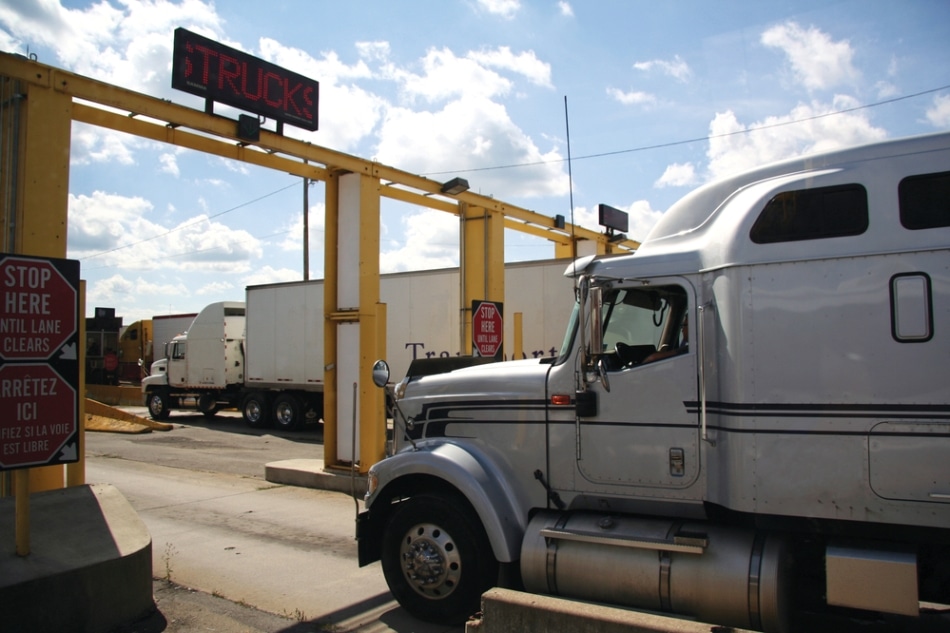Aug 3 2018
Saint-Gobain Crystals, a pioneer in radiation detection solutions for Homeland Security applications, has launched Extended Life Plastic™ detector for radiation portal monitor (RPM) applications. The brilliant Extended Life Plastic for gamma energy detection allows RPM systems to operate with low probability of escapes, high uptime, and affordable cost.
 Vehicles crossing Radiation Portal Monitor (RPM) installation at land border. (Image credit: Business Wire)
Vehicles crossing Radiation Portal Monitor (RPM) installation at land border. (Image credit: Business Wire)
RPM systems screen vehicles, people, and other objects for the presence of radiological and nuclear materials, and are largely used at border ports, crossings, and sensitive transit facilities. The important demands for end users are reducing costs while retaining effective deterrence. In the words Mike Kusner, Lead Researcher of the study, “In independent third-party accelerated testing, our prototypes did not exhibit any measurable performance degradation after a five-year equivalent of simulated use conditions.”
Our low energy gamma sensitivity design decreases the chances of false negative scans and increases detection of shielded materials. It also minimizes redesign time and costs when integrating into current installations.
Anton Zonneveld, Business Development Manager
Furthermore, Saint-Gobain has formerly commercialized Neuport™, a helium-3 substitute for the neutron detection module of the RPM. Neuport-based systems have been deployed in mobile and stationary systems for over seven years and provide one of the best price-to-performance ratios amongst substitutes. “Neuport’s plug and play design and modular electronics allows for easy replacement of current helium-3 detectors in radiation portal monitors,” added Engineering Manager Artan Duraj.
Saint-Gobain has also come up with a solution that integrates gamma and neutron detection into a cost-efficient compact format known as NaILTM. NaIL goes beyond the normal limits in relation to performance and cost to allow critical spectroscopic detection potential in comparison with legacy systems. Diane Fruehauf, Senior Technology Manager, stated that “NaIL has already been commercialized for smaller format radioisotope identification and detection (RIID) systems, and OEM interest for use in backpacks and portals is very high.” It is anticipated that NaIL for larger formats such as RPM systems will be commercialized by July 2019.